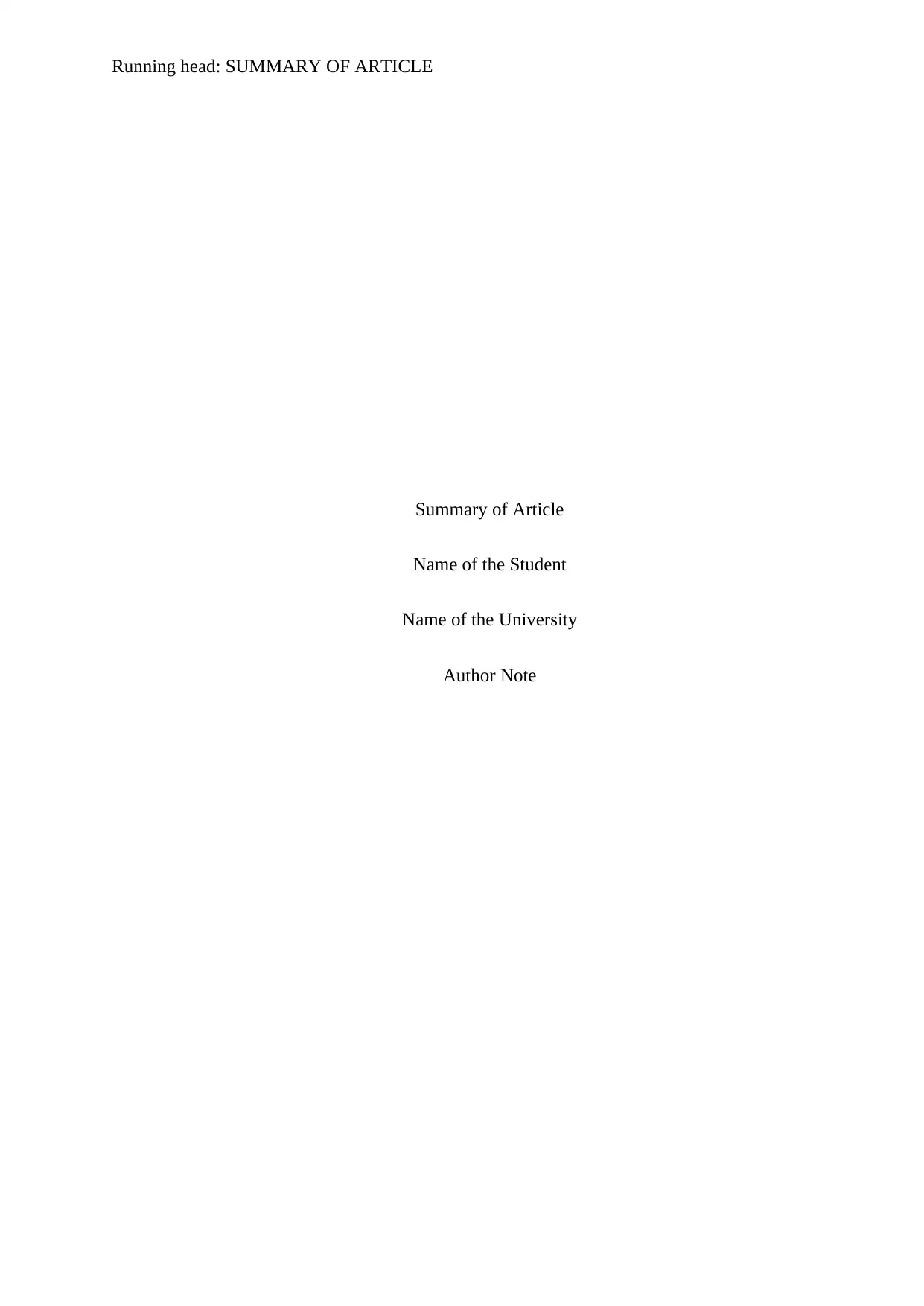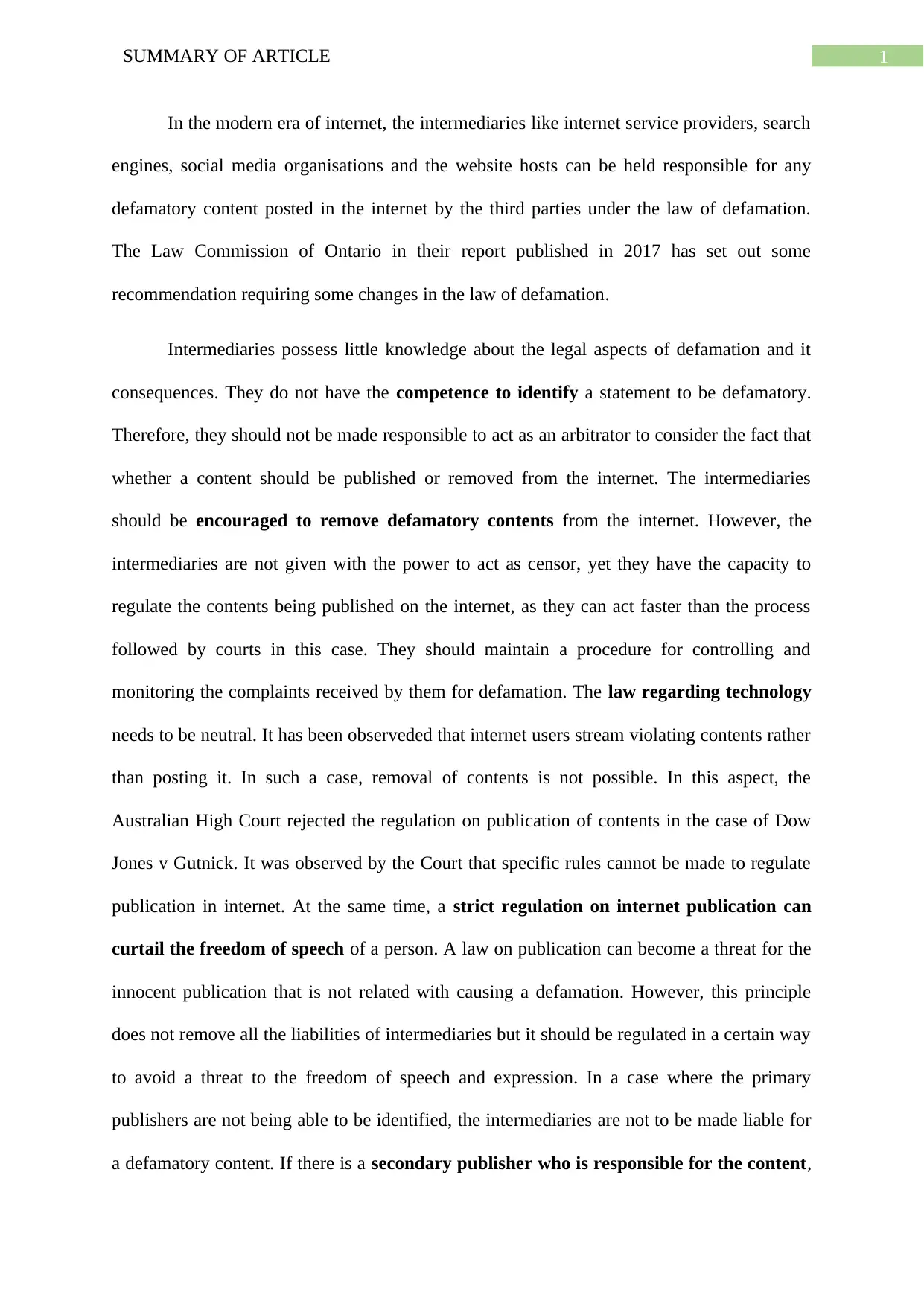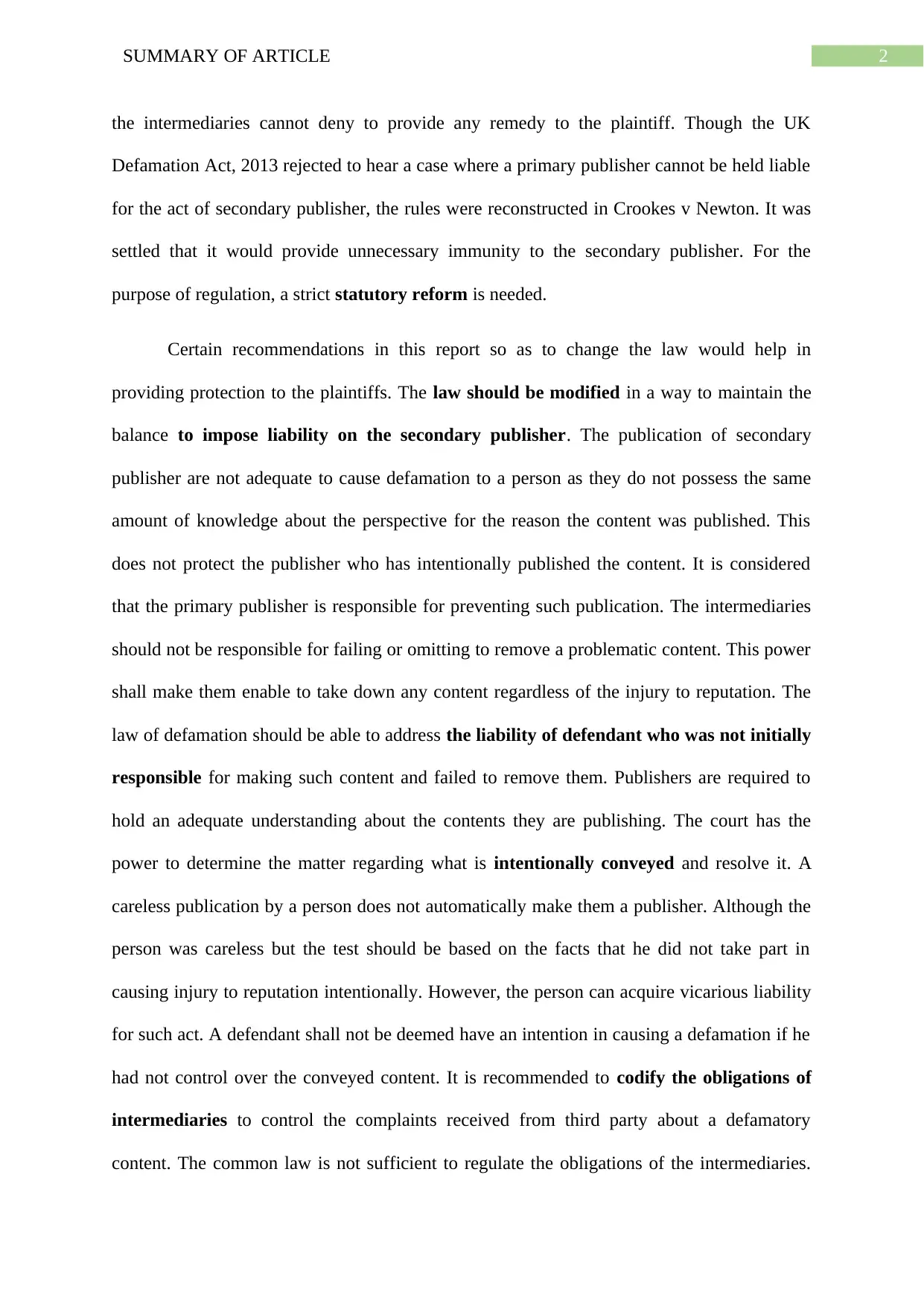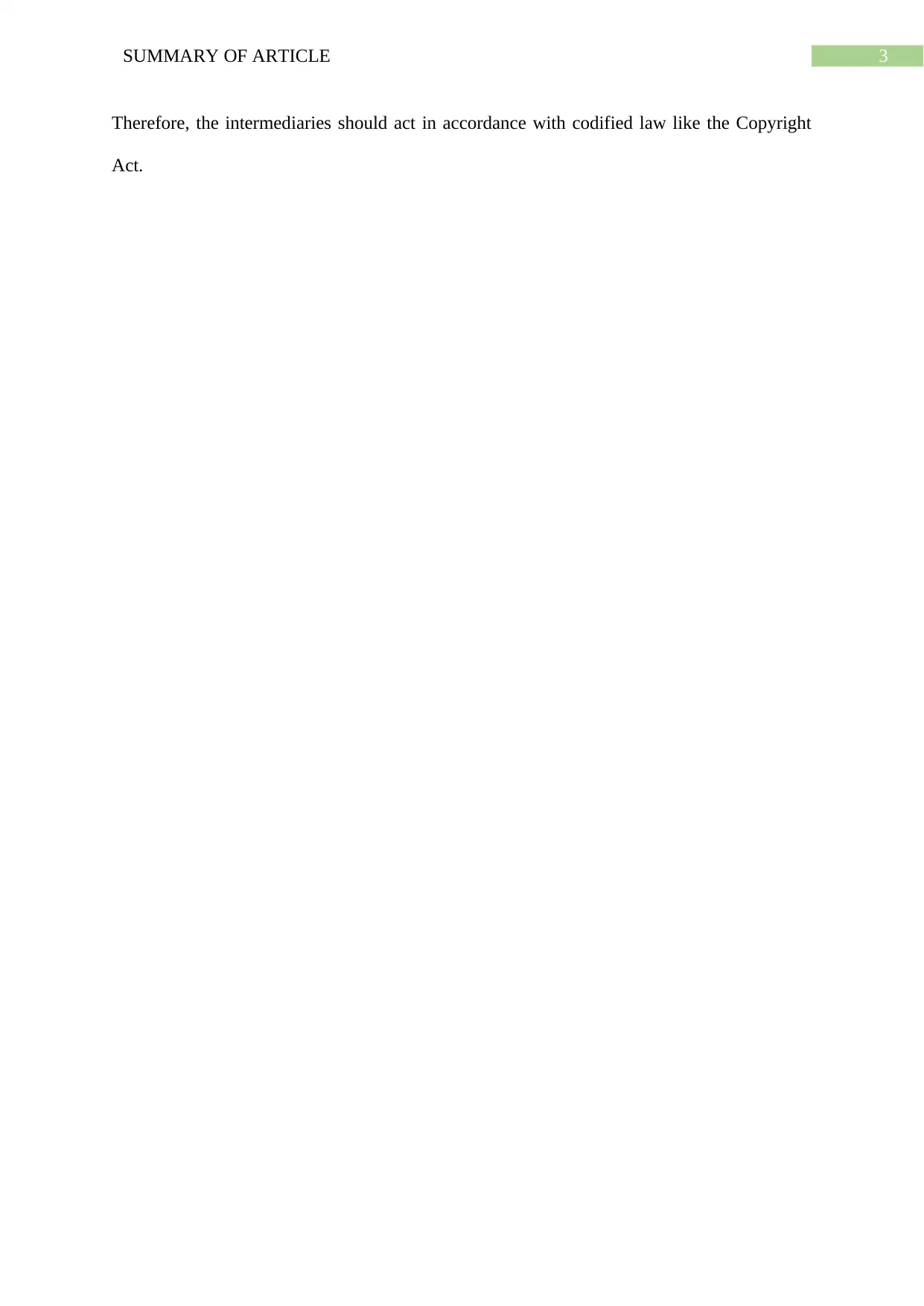Article Summary: Defamation Law and Internet Intermediary Liability
VerifiedAdded on 2023/06/03
|4
|832
|191
Report
AI Summary
This report summarizes an article focusing on the liability of internet intermediaries in defamation cases, particularly in the context of the digital age. The article discusses the application of defamation laws to intermediaries such as internet service providers, search engines, and social media platforms, examining their responsibility for third-party content. It explores the challenges intermediaries face in identifying defamatory statements and the debate over their role as content regulators versus arbiters of free speech. The report covers key legal concepts like publication, innocent dissemination, and publication by omission. It also analyses the common law approaches in various jurisdictions, including the United States, the United Kingdom, Australia, Hong Kong, and New Zealand. The article highlights the need for statutory reform to balance the protection of plaintiffs with the preservation of freedom of speech, and suggests recommendations for modifying defamation laws to address the liability of secondary publishers and the obligations of intermediaries regarding complaints about defamatory content. It emphasizes the importance of codified laws and the need for intermediaries to understand the contents they publish to avoid liability.
1 out of 4











![[object Object]](/_next/static/media/star-bottom.7253800d.svg)